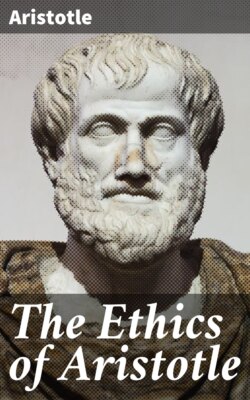Читать книгу The Ethics of Aristotle - Aristotle - Страница 9
На сайте Литреса книга снята с продажи.
ОглавлениеAnd we must add, in a complete life; for as it is not one swallow or one fine day that makes a spring, so it is not one day or a short time that makes a man blessed and happy.
Let this then be taken for a rough sketch of the Chief Good: since it is probably the right way to give first the outline, and fill it in afterwards. And it would seem that any man may improve and connect what is good in the sketch, and that time is a good discoverer and co-operator in such matters: it is thus in fact that all improvements in the various arts have been brought about, for any man may fill up a deficiency.
You must remember also what has been already stated, and not seek for exactness in all matters alike, but in each according to the subject-matter, and so far as properly belongs to the system. The carpenter and geometrician, for instance, inquire into the right line in different fashion: the former so far as he wants it for his work, the latter inquires into its nature and properties, because he is concerned with the truth.
So then should one do in other matters, that the incidental matters may not exceed the direct ones.
And again, you must not demand the reason either in all things alike, because in some it is sufficient that the fact has been well demonstrated, which is the case with first principles; and the fact is the first step, i.e. starting-point or principle.
And of these first principles some are obtained by induction, some by perception, some by a course of habituation, others in other different ways. And we must try to trace up each in their own nature, and take pains to secure their being well defined, because they have great influence on what follows: it is thought, I mean, that the starting-point or principle is more than half the whole matter, and that many of the points of inquiry come simultaneously into view thereby.
